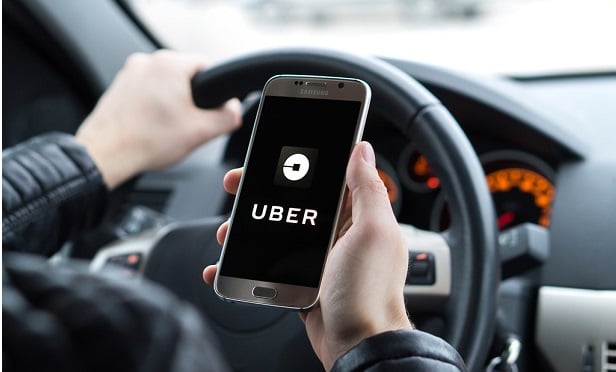 he litigation attacked the ride-sharing company's business model of treating its drivers as contractors to avoid the costs of paying a minimum wage, overtime, sick leave and health insurance.
he litigation attacked the ride-sharing company's business model of treating its drivers as contractors to avoid the costs of paying a minimum wage, overtime, sick leave and health insurance.
Uber Technologies Inc. will pay $20 million to settle California lawsuits challenging the company's classification of drivers as independent contractors, and not employees owed the benefits of traditional employment.
Resolution of the long-standing fight over benefits and pay comes as Uber is preparing for its initial public offering later this year. The litigation attacked the ride-sharing company's business model of treating its drivers as contractors to avoid the costs of paying a minimum wage, overtime, sick leave and health insurance.
The cases turned on whether drivers were essentially forced by their contracts to resolve any conflicts one-on-one, behind the closed doors of private arbitration and forbidden to join forces in class-action lawsuits. Drivers argued Uber made it onerous for them to opt-out of the arbitration provisions.
The central lawsuit initially posed a threat to Uber as it grew to represent as many as 385,000 drivers in California and Massachusetts after a San Francisco judge granted class-action status. That momentum was undone by an appeals court ruling upholding Uber's arbitration agreements as largely valid and enforceable, which ultimately reduced the class to about 13,600 drivers who will partake in the settlement.
The settlement, which requires a judge's approval, was filed late Monday in San Francisco federal court and confirmed by Shannon Liss-Riordan, who represents drivers in the San Francisco lawsuits and settled with the ride-share company.
“Uber has an arbitration clause which it very rigorously enforces,” Liss-Riordan said. “It's a myth that these opt-out provisions in arbitration clauses really make these agreements voluntary.” Liss-Riordan said she'll be seeking attorneys fees of $5 million.
Uber spokesman Matt Kallman didn't respond to an email after regular business hours seeking comment.
Even before the appeals court ruling, prospects for the suits against Uber were dealt a blow by a U.S Supreme Court decision last year, which bolstered the power of employers to force workers to use individual arbitration instead of class-action lawsuits.
The case is O'Connor v. Uber, 13-cv-03826, U.S. District Court for the Northern District of California (San Francisco).
Read more:
© 2025 ALM Global, LLC, All Rights Reserved. Request academic re-use from www.copyright.com. All other uses, submit a request to [email protected]. For more information visit Asset & Logo Licensing.







